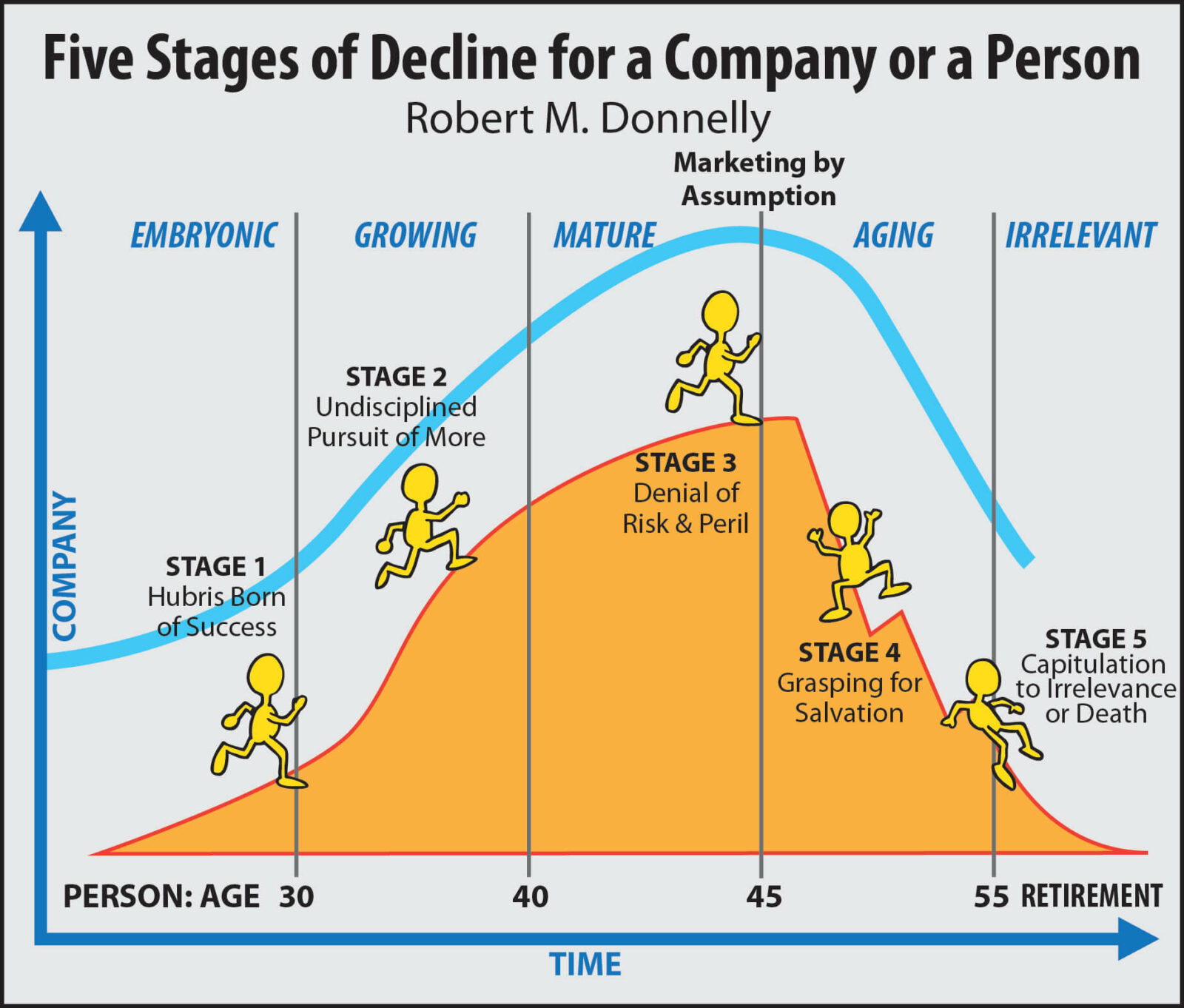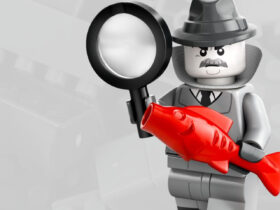 Most people do not realize how similar their career life cycle is to the business life cycle of the companies that they work for.
Most people do not realize how similar their career life cycle is to the business life cycle of the companies that they work for.
The pattern from childhood to adolescence to adulthood and into senior citizenship mirrors the familiar product life cycle of a business from startup (embryonic) to growth to maturity to decline. People make the same mistakes that companies do that do not have a well done and updated strategic plan, by not having a similar well done and executed career plan.
The list of well-known companies who reached maturity and began to “market by assumption” – by their management teams assuming that they knew more than their customers and then faltered, eventually failing to continue to grow every year. Likewise, many people take the same path and as they reach maturity in their careers, usually between 45 and 50, they begin to falter and start down the slippery slope to obsolescence for the balance of their work life.
Jim Collins, a well-known business scientist, captured this best in his time – “How the Mighty Fall.” His analogy of the factors that cause companies to fail applies to people, as well.
Collins explains that in the early stages of their evolution, companies and people that are initially successful assume a feeling of hubris and naturally begin to pursue the undisciplined pursuit of more as they continue to grow.
However, as they mature and do not realize that both as a company as well as a person, they need to assess where they are and seriously analyze where they really are in their respective marketplaces. This is a critical point in their natural evolution.
Most CEOs and people at this point in their respective life cycles tend to dismiss any concerns about their continued success and deny the risk of any possible failure while, in reality, they have entered the most perilous period in their business lives.
Once the reality of the situation becomes obvious, they begin to search desperately for the proverbial “silver bullet.” However, at this stage they are just grasping for salvation, and, as the situation continues to escalate out of their control, they enter Collins’s last phase – “capitulation to irrelevance,” or in the case of a company – “death.”
Since this scenario is repeated year in and year out, you would think that more people and companies would learn from this familiar sequence of events and plan to avoid falling into the same familiar pitfalls.
















